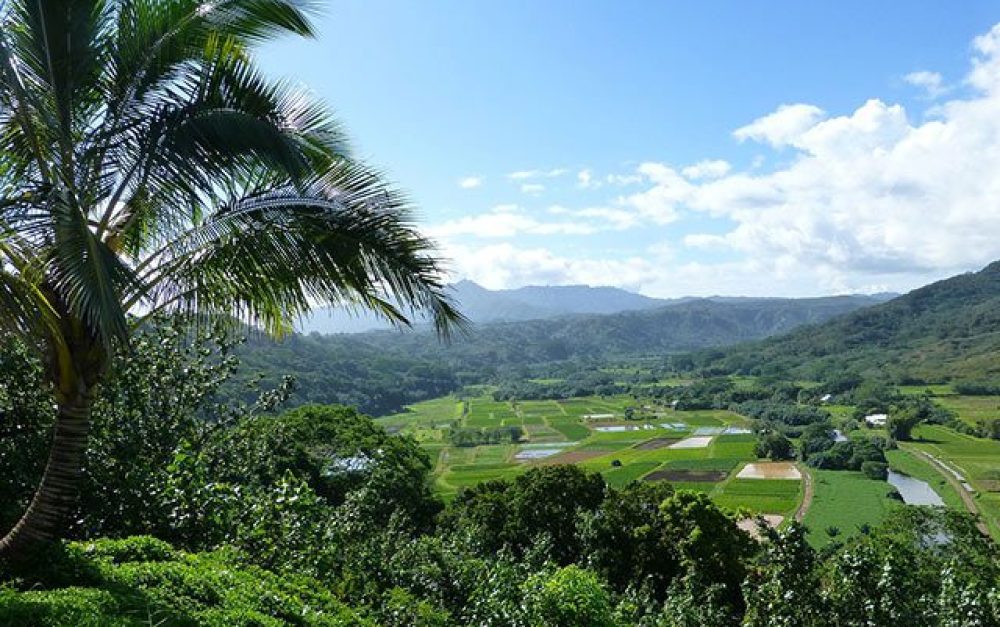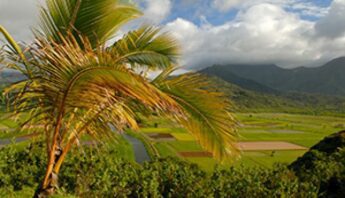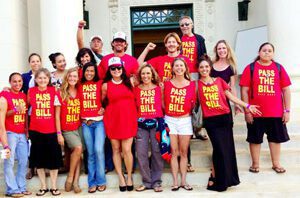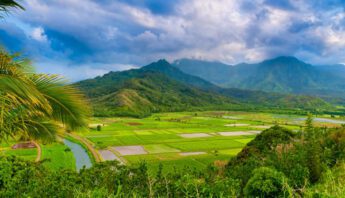PAN and our partners are back to court to stand up for the law passed by the County of Kaua'i last year. The groups are appealing a judge’s disappointing decision last month that struck down Kauai’s landmark law to ensure some of the world’s largest pesticide and biotech corporations are more transparent about their operations.
The law was intended to lift the veil on which pesticides are being used, and where, on the island. Many of these pesticides travel on wind and water to neighboring schools, neighborhoods and farm land. Despite corporate PR efforts, it’s clear that more information about agricultural practices is essential to building a fair, green and healthy food and farming system on Kaua'i.
Paul Achitoff, an attorney with Earthjustice representing PAN and the community group Ka Makani Ho‘opono, put it clearly and forcefully:
“As long as the State of Hawai‘i continues to sit on its hands while companies spray Kaua‘i’s residents with toxic chemicals, the county government will be forced to take the lead. It is their right and their kuleana.”
In his ruling last month, U.S. Magistrate Judge Barry Kurren reasoned that while no existing laws conflict with Kauai’s law (Ordinance 960, Bill 2491), existing laws imply the State of Hawai'i is given the authority to regulate pesticides — not counties. This has bearing all across Hawai'i, as the state legislature has failed to pass laws that meet local needs.
… and on Maui
In Maui County, residents there are also trying to pass a law — this one on November's ballot — to place a moratorium on genetically engineered (GE) seed operations on their island until an assessment of the health and environmental impacts of the operations is complete. As in Kaua'i, many hazardous pesticides are routinely applied to GE test fields — often near where people live, work and play.
Opposition to this ballot initiative has been fierce, particularly because Monsanto — one of the world's "Big 6" pesticide corporations — is replacing jobs previously offered by the sugar cane industry. The corporation is quickly becoming a major landholder and political force.
Mothers like Mercy Ritte, who I met earlier this year on the island of Molokai (one of the islands in Maui County), is one of those standing up to Monsanto. She and her family still hunt in Hawaiian ways and are attempting to rebuild traditional fishing ponds, but traditional food systems are under threat by the global pesticide giant intent on growing GE seeds for export.
Mercy and other mothers have their work cut out for them. Money is pouring into the effort to defeat the citizen’s initiative on Maui. In addition to Monsanto's clear opposition, the Hawaii Farm Bureau Federation is dumping $400,000 in public relations efforts, funding a PR blitz that includes everything from TV ads during football games to temporary tattoos and face-painting for schoolchildren. And in September alone, TV ads sponsored by industry front groups on the island's four major networks cost a total of over $330,000 — with lots of ad buys already placed for the coming month.
We won’t know who is making all the contributions, even when full disclosure reports don’t come out in late October. But it’s clear the pesticide industry is doing everything it can in the courts and in preparation of November's vote to keep Hawaiians from knowing more about GE seed operations and the pesticides that accompany them.
Photo: GreenieMama Pixabay








